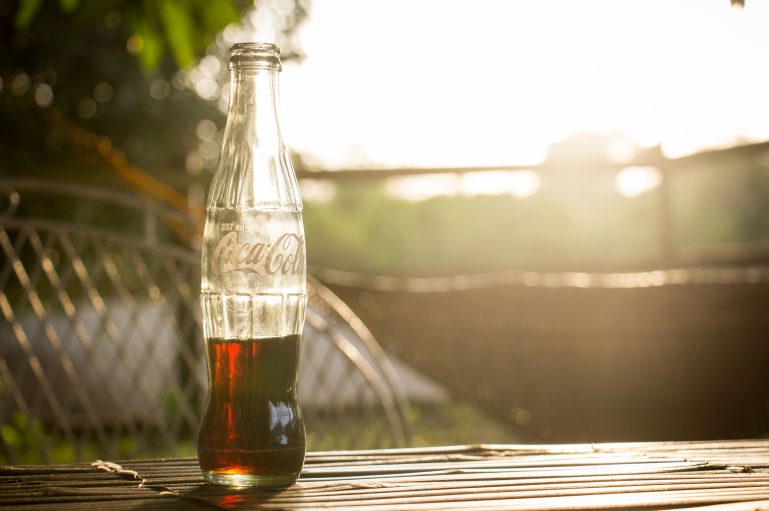The history of Coca-Cola began in 1886 when the curiosity of an Atlanta pharmacist, Dr John S Pemberton, led him to create a distinctive tasting soft drink that could be sold at soda fountains. He created a flavoured syrup, took it to his neighbourhood pharmacy, where it was mixed with carbonated water and deemed “excellent” by those who sampled it. Dr Pemberton’s partner and bookkeeper, Frank M Robinson, is credited with naming the beverage “Coca-Cola” as well as designing the trademarked, distinct script, still used today. The first servings of Coca-Cola were sold for 5 cents per glass. During the first year, sales averaged a modest nine servings per day in Atlanta. Today, daily servings of Coca-Cola beverages are estimated at 1.9 billion globally.
Although Pemberton and Robinson obviously have not been able to see the impact of the company in its current worldwide expression, what they started has resulted in huge investment in water, women and community well-being. James Quincey, President and CEO of The Coca-Cola Company, in a recent address to Rotarians, noted: “More and more companies are realising that we have something more valuable than cash to offer for the good of the public – and that’s our expertise, our know-how, our unique and specific strengths”. Coca-Cola’s goal is to align its business interests with the interests of the communities where it operates and to make a difference in areas where the company is most qualified, credible and capable.
- In 2007, Coca-Cola made a public commitment to become water-neutral by the year 2020 – returning to nature and communities every litre used in beverages and their production. The company met this goal in 2015, five years ahead of schedule.
- Their 5X20 initiative strives to empower 5 million women entrepreneurs economically by 2020. Working with a number of partners around the world, Coca-Cola has already reached 1.7 million women entrepreneurs with business training, mentoring and improved access to capital.
- Coca-Cola’s commitment to community well-being includes support for areas such as education, HIV/AIDS prevention, access to clean water and distribution of medical supplies and other essentials. Through “Project Last Mile”, for example, Coca-Cola uses its logistics, supply chain and marketing expertise to help African government agencies more efficiently deliver vital drugs, medicines and medical supplies.
Coca-Cola recognises the need to be ever-evolving, ever-collaborating and ever-listening. Quincey noted in relation to the challenges facing the world today: “One thing is clear: no one company, or nation, or organisation can solve these issues alone. More than ever, it’s going to require our collective cooperation, action and accountability. To affect real change, businesses such as Coca-Cola need to clearly understand the needs of the people they serve. They also need a structure and culture that allow them to act quickly and effectively”.
The Coca-Cola success story and subsequent impact on hundreds of communities around the world was not realised by the founders of the company, but what they started has now evolved into a huge contribution, positively impacting the lives of many. Don’t give up – play your part responsibly.










